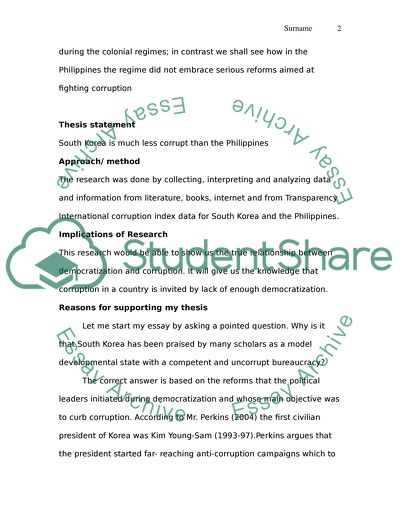Cite this document
(“Democratization in The Philippines and South Korea Essay”, n.d.)
Retrieved from https://studentshare.org/miscellaneous/1520209-democratization-in-the-philippines-and-south-korea
Retrieved from https://studentshare.org/miscellaneous/1520209-democratization-in-the-philippines-and-south-korea
(Democratization in The Philippines and South Korea Essay)
https://studentshare.org/miscellaneous/1520209-democratization-in-the-philippines-and-south-korea.
https://studentshare.org/miscellaneous/1520209-democratization-in-the-philippines-and-south-korea.
“Democratization in The Philippines and South Korea Essay”, n.d. https://studentshare.org/miscellaneous/1520209-democratization-in-the-philippines-and-south-korea.


